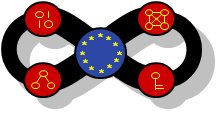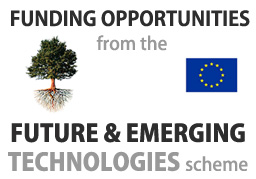Università degli Studi di Trento

The University of Trento ranks consistently among the top Italian universities in recent CENSIS surveys. It is also one of the most international Universities in Europe, with a large number of joint degrees in all disciplines with counterparts Austria, France and Germany. It hosts an EU Marie Curié Chair in Networking and Security, and is a co-recipient of an EU approved Erasmus Mundus Masters in Informatics (jointly with the Universities of Aachen and Edinburgh). It has a formalized long-term collaboration with Indian Universities and Research Centers through the ITPAR (India-Trentino) research center and a large number of PhD and Postdoc students from all over the world. Trento will host a Microsoft Research center and an Italian-Indian research center on web services. Its Department of Information Technology (DIT) organizes an International Doctorate School with about 90 students of whom 50% come from outside the European Union. In the last years the department has raised a number of EU and national research projects and a number of industrial projects.
The department will participate as a joint effort of the Software Engineering and Formal Methods, and Distributed Systems research units. Members of these research programs participating to this project have a strong background in security, services, process management, and data analysis. Currently the UNITN Secure Change team is contributing or is a member in the following EU networks or projects: FET-IP-SENSORIA, ITS-STREP-S3MS (where it is European coordinator), IST-IP-SERENITY.
Key personnel
Fabio Massacci received a M.Eng. in 1993 and Ph.D. in Computer Science and Engineering at University of Rome "La Sapienza" in 1998.He worked in Cambridge University, the University of Siena and IRIT Toulouse and the University of Trento, where he chairs the Computing and Telematic Services of the University. In 2001 he received the Intelligenza Artificiale award, a young researchers career award from the Italian Association for Artificial Intelligence. He is member of AAAI, ACM, IEEE Computer society and a chartered engineer. His research interests are in automated reasoning at the crossroads between requirements engineering, computer security and formal methods. Currently he is actively working on industry level security engineering methodologies and is administrative coordinator of the S3MS EU STREP Project on mobile systems security, and he is the scientific coordinator in the MASTER EU project.
John Mylopoulos received his BEng degree from Brown University in 1966 and his PhD degree from Princeton in 1970, the year he joined the faculty of the University of Toronto. His research interests include information modelling techniques, covering notations, implementation techniques and applications, knowledge based systems, semantic data models, information system design and requirements engineering. He is the recipient of the first Outstanding Services Award given by the Canadian AI Society (CSCSI), a co-recipient of the best-paper award of the 1994 International Conference on Software Engineering, a fellow of the American Association for AI (AAAI) and an elected member of the VLDB Endowment Board. He has served on the editorial board of several international journals. He has also contributed to the organization of major international conferences, including program co-chair of the International Joint Conference of AI (1991), general chair of the Entity-Relationship conference (1994), and program chair of the International IEEE Symposium of Requirements Engineering (1997). He is currently leading a number of research projects and is principal investigator of both a national and a provincial Centre of Excellence. In particular, he leads a project on software evolution, leads a project on organizational analysis and design, works on a software migration project funded by IBM Canada and NSERC, and works with Ontario Hydro on a project intended to develop intelligent assistants for power plant operators.





